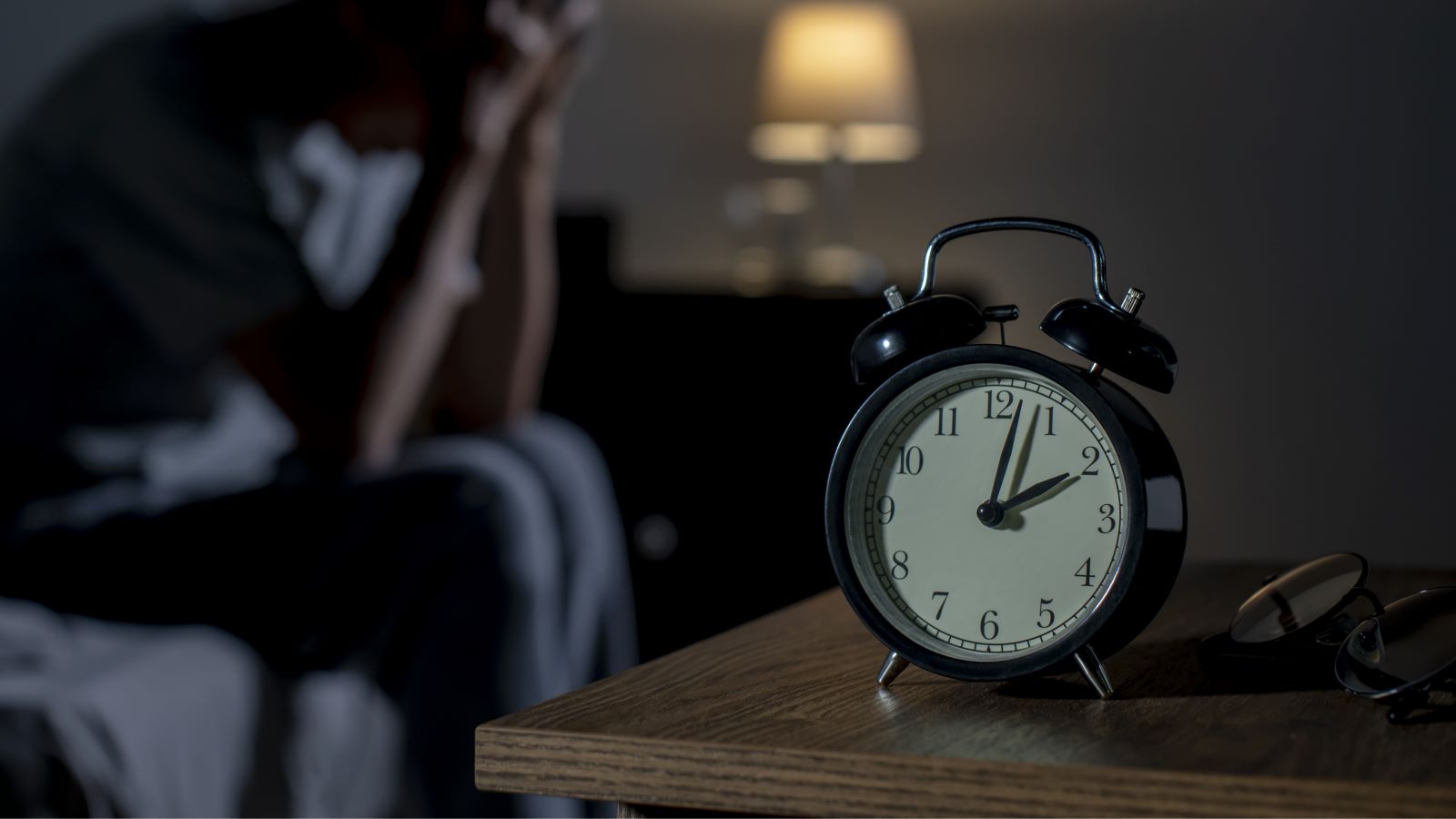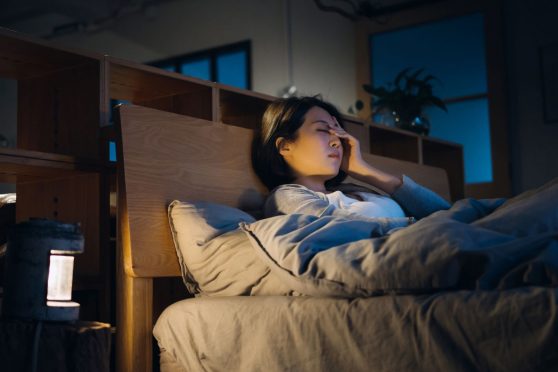Tossing and turning at night? You’re in good company. At any given time, about one out of three adults struggles with sleep issues.
Whether yours is a recent problem or a lifelong woe, understanding the causes of insomnia is the first step toward getting the rest you need.
An expert explains.
Connect with a sleep disorders specialist
1. Stress, life events & disrupted routines
Stress strikes again. From daily deadlines to major life changes, stress is one of the leading causes of insomnia.
Plus — as if you needed the reminder — it can strike anywhere. Even small disruptions, like an unfamiliar bed or a travel schedule, can trigger short‑term insomnia. From there, the effects can snowball.
“Stress activates the brain’s alert system, and once your body ‘learns’ how to be sleepless, it can be hard to unlearn it,” says Christina Abavana, MD, a neurologist and sleep medicine specialist with Hartford HealthCare Medical Group. “That’s how short-term insomnia turns into a long-term pattern.”
To help break the cycle, try:
- Sticking to a consistent bedtime, even on weekends
- Avoiding stimulating tasks and screens before bed
- Creating a wind-down routine with calming rituals, like reading or gentle stretches
2. Lifestyle habits & environmental factors
As you go about your day, many of your usual routines — and the spaces you do them in — could be quietly working against your sleep.
“Light, noise, stress, diet — it all adds up,” says Dr. Abavana. “Sleep is like a chain: If one link is off, the whole thing can fall apart.”
So if you’re struggling with sleep, it may be time for some detective work. Do any of these “hidden” causes of insomnia apply to you?
- Drinking caffeine or alcohol too late in the day
- Using screens before bed (blue light disrupts melatonin)
- Irregular sleep schedules or frequent naps
- A bedroom that’s too noisy, warm or bright
- Eating large meals close to bedtime
- Certain medications or supplements
Want a Weekly Dose of Health News?
3. Medical conditions and mental health
Last but not least, insomnia is often linked to underlying physical or mental health conditions.
“This is one of the most overlooked causes of insomnia, and one of the most important to address,” says Dr. Abavana.
For example, your sleep issues may be connected to:
- Chronic pain (like arthritis or back problems)
- Anxiety or depression
- Acid reflux or GERD
- Thyroid imbalances
- Neurological disorders
- Heart or lung conditions
- Hormonal changes (including menopause)
- Sleep apnea or restless leg syndrome
“If insomnia lasts more than a few weeks or starts affecting your daily life, talk to your primary provider or a sleep specialist,” says Dr. Abavana. “They can help get to the bottom of what’s really going on — whether that means a medication adjustment, therapy or something else.”
Most insomnia has more than one cause — and more than one solution
Stress can worsen pain. Pain can cause anxiety. Anxiety can keep you up. Suddenly, it’s not just one thing making you toss and turn. It’s a whole spiderweb of issues.
But even when the causes of insomnia are complex, the solutions don’t have to be.
“You don’t have to overhaul your life overnight. Just take one step at a time,” says Dr. Abavana. “Even small changes can shift you toward better sleep.”
Start with the list above. And if the tossing and turning continues, reach out to a sleep expert. You don’t have to figure it out alone — and better sleep may be closer than you think.



